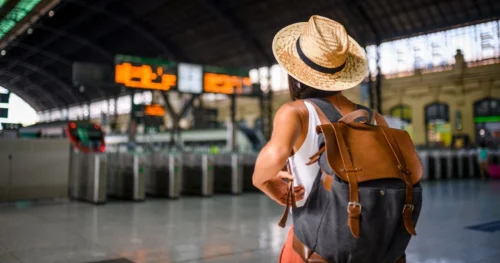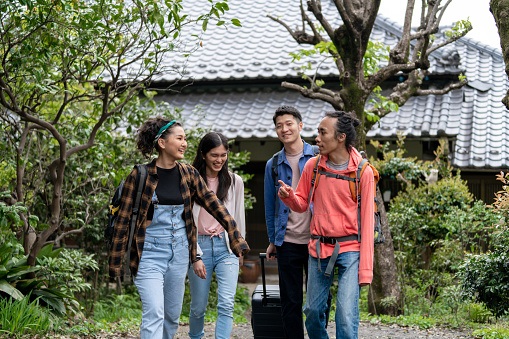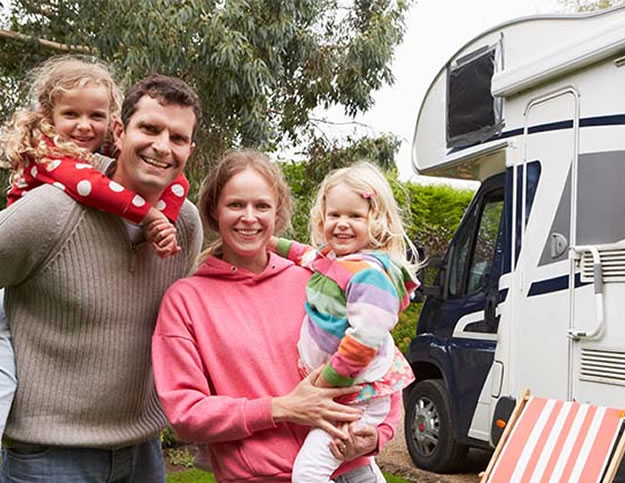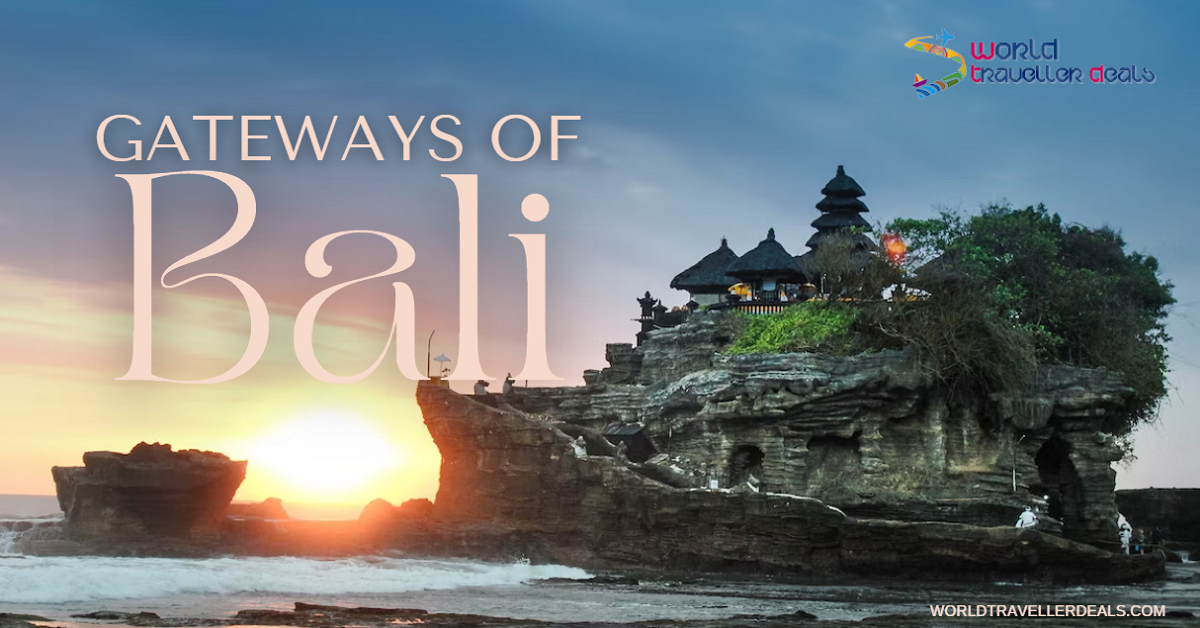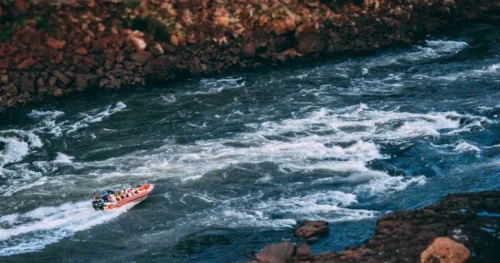Traveling solo is one of the most rewarding experiences you can have. It offers true freedom, flexibility, and the chance to connect with your surroundings on your own terms. You can explore at your own pace, make spontaneous decisions, and immerse yourself fully in the local culture. Yet solo travel also comes with unique challenges, especially regarding personal safety and security. Whether it’s wandering city streets after dark, keeping your tech devices secure, or showing cultural respect in unfamiliar environments, being aware and prepared can make all the difference. Here are some essential travel security tips for solo travelers.
Solo Travel Safety Tips for Confident Adventures
Evening Outings
Evening outings can be some of the most exciting parts of travel, from visiting night markets and cafes to enjoying live music and cultural events. However, nighttime also brings heightened risks, so it is essential to approach it with caution.
Plan Ahead
Preparation is your first line of defense when exploring a new city, especially after dark. Take the time to research your destination thoroughly. Identify neighborhoods known to be safe and areas with lively nightlife, while marking spots to avoid. Reading recent online reviews or travel forums can give you a sense of the local scene, but don’t underestimate the value of asking your accommodation staff or locals—they often know about areas in transition or temporary risks that aren’t online yet.
For instance, in Bangkok, night markets like Rot Fai Market in Ratchada are bustling, vibrant, and well-lit, making them ideal for evening exploration. Conversely, some of the backstreets around Khao San Road are quieter and dimly lit at night, which can make them riskier for solo travelers. Planning your route, knowing which streets are well-lit, and identifying nearby transport hubs can help you avoid getting lost or caught in an unsafe situation. Having a mental map or a navigation app ready can boost your confidence and allow you to enjoy your night without unnecessary worry.
Stay Connected
Maintaining contact with someone you trust is more than a courtesy—it’s a key safety measure. Before heading out, let a friend or family member know where you’re going and what time you expect to return. Even a simple text like, “Heading to the night market, back by 11 PM,” can make a difference.
Take advantage of technology: most smartphones and messaging apps now allow real-time location sharing. Apps like WhatsApp, Google Maps, or dedicated safety apps let you temporarily share your location with trusted contacts so they can track your journey if needed. This ensures that someone is aware if your plans change or if you encounter a problem, giving both you and your loved ones peace of mind.
Use Reliable Transportation
Late-night walks in unfamiliar areas can increase your risk of encountering unsafe situations. Instead, rely on trusted transportation options. Ride-hailing apps such as Grab, Uber, or Lyft often provide a safer alternative to hailing taxis off the street, as they allow you to verify the driver’s identity, track the journey in real time, and share your route with friends.

Even when using taxis, it’s wise to confirm the driver and vehicle match the app’s information, and avoid rides that seem suspicious or unofficial. If you do need to walk, stick to busy, well-lit streets and avoid shortcuts through alleys or deserted areas. Planning your return journey helps prevent being stranded late at night.
Trust Your Instincts
Your intuition is one of the most powerful safety tools at your disposal. If a situation doesn’t feel right—whether it’s a person following you, a dark alley, or a tense atmosphere—trust that gut feeling and remove yourself immediately. It’s better to leave and err on the side of caution than risk potential danger.
Additionally, pay attention to subtle signals: loud arguments, erratic behavior, or groups behaving suspiciously are cues to seek safety. Trusting your instincts isn’t about paranoia; it’s about being aware and making decisions that protect your well-being.
Carry Essential Items
A personal safety kit doesn’t need to be bulky but can make a real difference. Items such as a small whistle, a compact flashlight, or a portable door alarm can provide reassurance and practical assistance in emergencies.
Keep your phone fully charged and carry a power bank to ensure you can call for help or access navigation apps. A small amount of local currency tucked away in a separate pocket can be helpful if you need to take an unplanned taxi or cover minor expenses during an emergency. By combining these practical tools with the strategies above, you can move through new cities with greater confidence and peace of mind.
Tech Safety: Protecting Your Devices and Data
In today’s travel environment, technology is a lifeline. Smartphones, laptops, and other devices allow you to navigate cities, access travel guides, stay in touch with loved ones, and even make bookings. But these devices can also make you vulnerable if not handled securely.
Protect Your Devices
Carry your devices discreetly. Avoid flashing expensive electronics in crowded areas or on public transport. A secure crossbody bag or anti-theft backpack can deter pickpockets. Many bags feature lockable zippers, RFID-blocking compartments, and slash-proof materials to protect your valuables.
Use Secure Connections
Public Wi-Fi networks are convenient but risky. Hackers often target unsecured networks to steal personal information. Whenever possible, use a personal hotspot or a reliable VPN to encrypt your online activity. This ensures your passwords, financial information, and sensitive data remain private.
Backup Your Data
Before leaving home, back up important files and photos to cloud storage or an external hard drive, so that even if your device is lost or stolen, your information remains safe. Keep digital copies of important documents such as your passport, ID, travel insurance, and emergency contacts. Store these copies separately from the originals.
Strong Passwords and Two-Factor Authentication
Use strong, unique passwords for your online accounts. Enable two-factor authentication whenever possible. This extra layer of security can prevent unauthorized access even if your password is compromised. Consider using a password manager to store and manage multiple complex passwords securely.
Avoid Oversharing Online
While social media is great for sharing your journey, be cautious about posting real-time locations. This information can be exploited by criminals seeking to lure travelers away from home. Save updates for the next day or use privacy settings to limit visibility.
Cultural Respect: Staying Safe by Being Mindful
Traveling safely is not only about physical protection; it also involves respecting the local culture. Understanding cultural norms can prevent misunderstandings and reduce the likelihood of conflict or unwanted attention.
Learn Local Customs
Before your trip, spend time learning about the customs, traditions, and social norms of your destination. Some cultures have strict dress codes, gender norms, or behavioral expectations. Following these guidelines shows respect and reduces the risk of offending locals, which can sometimes escalate into safety issues.
For instance, when visiting countries like Saudi Arabia or Iran, dressing modestly is not just a cultural courtesy but a legal expectation. In Japan, maintaining quiet and respectful behavior in public spaces is highly valued and contributes to a safer, more positive experience.
Observe Public Behavior
Pay attention to how locals interact in public. This can include how they queue, gesture, or navigate social spaces. Following local etiquette not only helps you blend in but also reduces the risk of attracting unnecessary attention.
Language Awareness
Even learning basic phrases like “hello,” “thank you,” and “excuse me” in the local language can go a long way. It shows respect and can help in emergencies. People are generally more willing to assist travelers who make an effort to communicate respectfully.
Respect Personal Boundaries
In some cultures, physical gestures, eye contact, or even taking photographs can be sensitive. Always ask permission before photographing people or private property. This simple practice helps avoid misunderstandings and maintain a safe, respectful environment.
General Solo Travel Safety Tips
Beyond evening outings, tech security, and cultural respect, several universal practices enhance safety for solo travelers.
Blend In
Try to avoid looking like a tourist. Dress like a local, carry a day bag instead of large luggage, and refrain from consulting maps openly in public. Blending in makes you less of a target for opportunistic theft.
Secure Your Accommodations
Choose accommodations with good reviews for safety. Look for properties with secure entry points, locks, and safes for valuables. Hostels and hotels often provide lockers, but consider bringing your own small lock for extra security.
Carry a Minimal Amount of Cash
Avoid carrying large sums of money. Use a combination of cash, cards, and digital payments to reduce risk. Keep some money separate from your wallet in case it’s lost or stolen.
Emergency Preparedness
Know the local emergency numbers, including police, fire, and medical services. Keep a small card with your hotel’s address, embassy contacts, and emergency numbers. In unfamiliar places, having this information readily available can save crucial time.
Build Connections
Even as a solo traveler, building casual connections with locals and fellow travelers can increase safety. Friendly conversations with shopkeepers, hostel staff, or tour guides can provide tips on safe areas, transport options, and local customs.
Solo Travel with Confidence
Solo travel is a journey of independence, self-discovery, and adventure. With the proper preparation, it can be not only enjoyable but also safe and secure. By taking precautions during evening outings, safeguarding your devices, and respecting local cultures, you can minimize risks while maximizing your experience.
The key to solo travel security lies in preparation, awareness, and common sense. Plan your routes, keep your digital life secure, observe cultural norms, and trust your instincts. Traveling alone may seem daunting at first, but with these tips, it can be a liberating and enriching experience that opens doors to unforgettable memories. Your journey is yours to craft, and staying mindful of safety ensures that it remains positive from start to finish.


